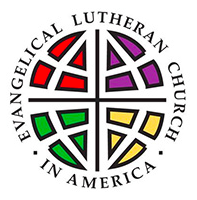
The Path of Healing
Mar 31, 2019
By Pastor Jean M. Hansen
It’s Lent still, Week #4, and we’ve been doing things somewhat differently than usual in Sunday morning worship. For one thing, we’ve been emphasizing confession and at 9 a.m. worship have reminded ourselves what Martin Luther had to say about it 500 years ago. (We’ll do so again next Sunday.) We also have been focusing on the Psalms, and it just so happens that today those two elements come together in the theme from Psalm 32, “Confess to God.”
Psalm 32 is one of the seven penitential psalms of the early church. It begins on a positive note: “Happy are they whose transgressions are forgiven, and whose sin is put away! Happy are they to whom the Lord imputes no guilt, and in whose spirit there is no guile.” (vs. 1-2) We think of “happy” as an emotion, a feeling, but that translation does not fully cover the sense of this important Hebrew word.
It refers to a way of life and is literally translated “to go straight”, that is, to be on the right path. So, instead of “happy” we might read: “Those whose transgression are forgiven and whose sin is put away are traveling on the right path!” It’s a good idea to be on the right path because of what happens on the wrong one.
That’s what verses 3 and 4 describe – the pain of bearing the burden of guilt, shame and sin. Commentator Beth L. Tanner summarizes those verses in this way: it’s a heavy feeling; it is the prodigal (of the Gospel lesson) on the long walk home to admit his folly and beg for mercy. It is the feeling in the pit of your stomach when you know your words or actions hurt another and that sin also hurts God. Yet, at the same time, that gnawing is the pull of a desire for a restored relationship. The pain is so overwhelming that it is both mental and physical; it’s felt in our hearts and bones. (1)
That pain is the result of being on the wrong path, and a reason for ending up there is mentioned at the end of verse 2 – guile or deceit. Without it, there’s contentment; with it, there’s suffering. The list of ways to be deceitful is long, but the Psalmist gives an example related specifically to confession – covering up sin with silence (while I held my tongue…). Two other types of deceit in confession are not named in Psalm 32, although they are mentioned in other psalms. One is going through the motions (how often are our thoughts on what’s for lunch instead of on the fact that we are confessing our sins) and the other is making confession a show (as is the case of the religious leader Jesus describes who makes sure everyone in the synagogue is tuned in to his act of contrition). Both lack sincerity.
However, the faithful confession of verse 5 puts us back on track when we’ve gone off the rails. Thankfully, God’s mercy is wider than God’s anger. Last week we sang the hymn, “There’s a Wideness in God’s Mercy” that has astounding lyrics, especially verse 3: “For the love of God is broader than the measures of our mind; and the heart of the Eternal is most wonderfully king. But we make this love too narrow by false limits of our own; and we magnify its strictness with a zeal God will not own.” (ELW, #588)
Moving on to verse 6-7, the language used is often found in the psalms referring to God hiding the faithful from enemies. But, in this context, the threatening, rising water is of the person’s own doing, and through the prayer of confession God delivers him or her from drowning in that guilt, shame and sin.
There are two ways to view verses 8-9, either that the forgiven one will teach a better way to the reader, or that God is speaking, which is how I view it. In either case, isn’t verse 9 great? “Do not be like horse or mule, which have no understanding; who must be fitted with bit and bridle, or else they will not stand near you.” In other words, being stubborn and resisting when God is leading will only make staying on the right path more difficult than it needs to be. Don’t do it! Instead, trust in God and be embraced by mercy; it’s a reason to rejoice, be glad, shout for joy, proclaims verses 10-11!
If we put the psalm in a Christian context, those who uncover their sins before God will experience the joy of having their sins covered by God’s grace in Jesus. (2) The message is that forgiveness changes everything, including us.
t’s interesting that this Psalm is today’s focus when, on Wednesday, the theme of our collaborative interfaith justice series is, “How Forgiveness Heals Hate”. We’ll be watching a brief video from Homeboy Industries, which is a ministry to gang members, in which a man whose life was ruled by hate reflects on the healing power of forgiveness. In another video from that ministry, its founder, Father Gregory Boyle, speaks about the value of forgiving everyone, everything. Why? It’s because forgiveness may be the greatest power in our lives.
Its power prevails even when the forgiving is unstated, as is the case in this story told by the Rev. Dr. Robert Dunham, originally told on NPR by Michael Garofalo.
It’s about a then 31-year-old social worker named Julio Diaz who followed the same routine each evening. He’s ended his subway commute to eat at his favorite diner. But, one night his evening took an unexpected turn. A teenage boy approached him, pulled out a knife and asked for his money. So, Diaz gave the boy his wallet.
I think he must have seen a flicker of hope in the boy, because as his assailant began to walk away, Dias said, “Hey, wait a minute. Your forgot something. If you’re going to be robbing people all night, you might as well take my coat to keep you warm.” The young man was startled and asked why he would do such a thing. Diaz replied, “Well, if you’re willing to risk your freedom for a few dollars, then I guess you must really need the money. I mean, all I wanted to do was get dinner … and if you want to join me…you’re welcome.”
Remarkably, the boy agreed. In the diner, Diaz was greeted by other customers and employees, even the dishwasher, causing the boy to think he owned the place. “No,” said Diaz, “I just eat here a lot.” “But you’re nice to everybody,” said the boy, “I didn’t think people actually behaved that way.”
At one point during the meal, Diaz asked what the teen wanted out of life; the boy looked sad, but did not answer. When the bill arrived, Diaz told the teen, “Look, I guess you’re going to have to pay the bill because you have my money and I can’t pay for it. But if you give me my wallet back, I’ll gladly treat you.”
The teen ‘didn’t even think about it’, according to the account, and handed over the wallet. Diaz paid the bill and gave the boy $20, but asked for something in return, and the boy gave it to him. It was the knife. (3)
Now, we may find that story hard to believe, although I’ve read enough of Father Boyle’s accounts to think it could be true. It’s an example of forgiveness (offering the coat, a meal, companionship). Was handing over the knife an act of confession, a way to seek forgiveness after being forgiven? Perhaps this was a step onto Psalm 32’s right path where healing begins. AMEN
“Commentary of Psalm 32” by Beth L. Turner, www.workingpreacher.org
“The Lectionary Psalms – Psalm 32” by Stan Mast,
“Which Comes First: Grace or Repentance?” by the Rev. Dr. Robert Dunham, Luke 15:11-32, March 14, 2010, www.day1.org






